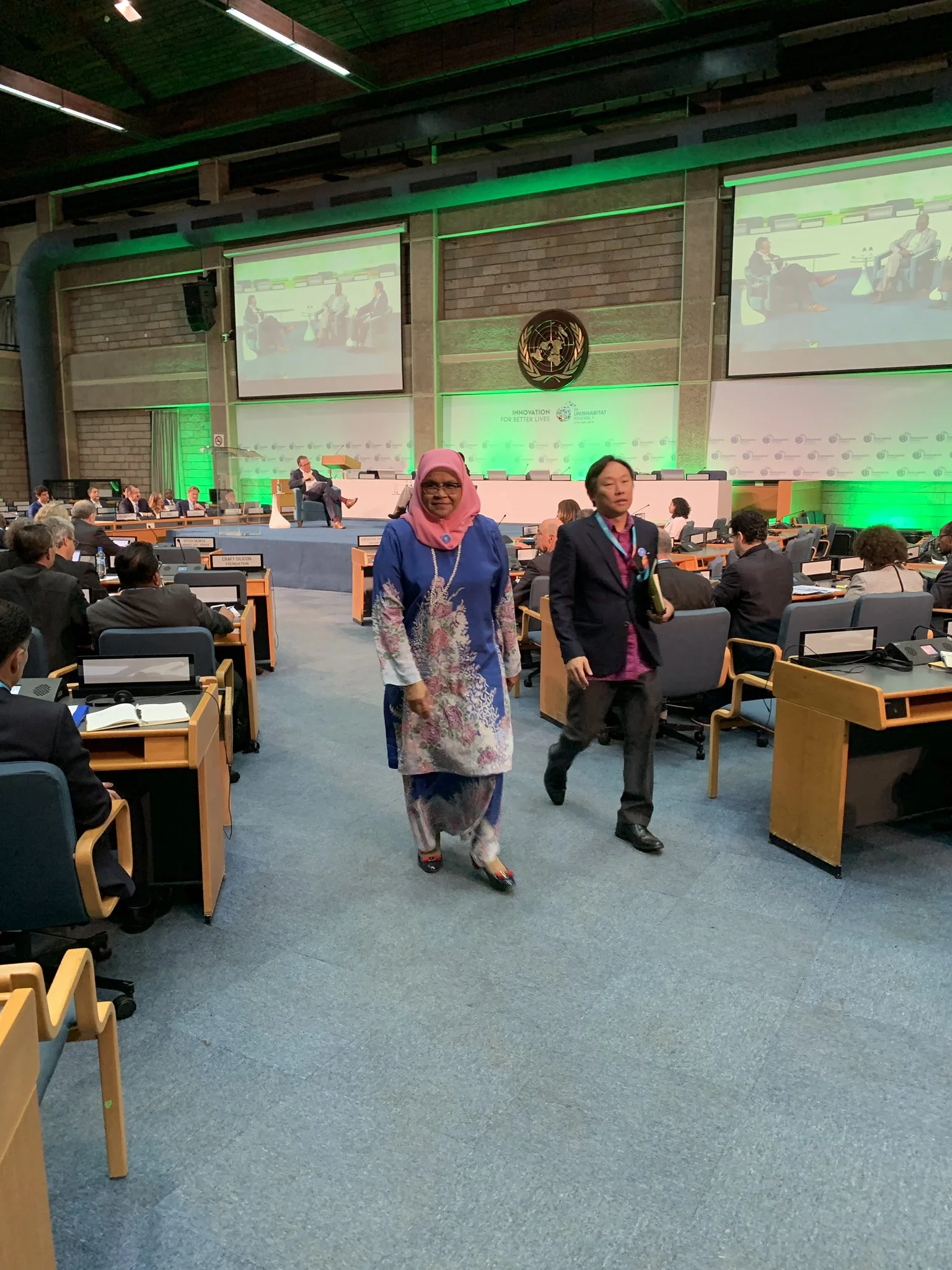As the first United Nations Human Settlements Programme (UN-Habitat) Assembly approaches, we recognize that it will be taking place during the holy month of Ramadan. Ramadan is a time when Muslim communities from around the world traditionally come together - to fast, to pray, to reflect and to encourage one another.
In this spirit, UN-Habitat, in partnership with Member States, Jamia Mosque Committee, and the UN Environment Faith for Earth Initiative, will be hosting the first Ramadan Interfaith Dialogue on 27 May 2019. The Interfaith Dialogue series will provide an inclusive platform where people from around the world attending the UN-Habitat Assembly can share their experiences and offer their perspectives on interfaith issues.
UN-Habitat recognizes that cities are in a unique position to be able to connect, bring communities together, celebrate diversity and inclusion. Interfaith Dialogues will offer delegates the opportunity meet, explore similarities, challenge stereotypes and build relationships for healthier and sustainable communities. This resonates with UN-Habitat’s mandate to promote inclusive, safe, resilient and sustainable cities where no one and no place is left behind.
Context
Religious faith is deeply ingrained in the way cities look and function. In the past, cities were often built with places of worship at their centre. Faith serves a social purpose, bringing city dwellers together to mourn, celebrate, remember, reflect and to help others.
The New Urban Agenda is strongly focused on using urbanization as a transformative force to achieve inclusiveness in cities at all levels. The Transformative Commitments highlight the importance of an inclusive approach “embracing diversity in cities and human settlements, to strengthening social cohesion, intercultural dialogue and understanding, tolerance, mutual respect, gender equality, innovation, entrepreneurship, inclusion, identity and safety, and the dignity of all people, as well as to fostering liveability and a vibrant urban economy. We also commit ourselves to taking steps to ensure that our local institutions promote pluralism and peaceful coexistence within increasingly heterogeneous and multicultural societies” (para 40).
The Sustainable Development Goals (SDGs) are focused on the vision to ‘leave no-one behind.’ SDG 10 aims to reduce inequality within and among countries, and specifically, ‘target 10.2’ aims to ‘empower and promote the social, economic and political inclusion of all, irrespective of age, sex, disability, race, ethnicity, origin, religion or economic or other status’. This is closely linked to SDG 11: to ‘make cities inclusive, safe, resilient and sustainable’.
These two key international commitments demonstrate the vision of the international community to create cities that provide inclusive places, in which all residents can enjoy equally, without suffering discrimination of any kind. Future cities should be just, safe, healthy, accessible, affordable, resilient and sustainable, while fostering prosperity and a high quality of life for everyone. For this vision to be achieved, all beliefs must be empowered throughout the urban development process, from participation in governance to targeted programming and faith-responsive outcomes.
This event will examine the role of UN-Habitat in implementing this transformative vision, from the perspective of interfaith issues, through the Strategic Plan 2020-2025. The Strategic Plan highlights diversity and tolerance as a key social inclusion issue, mandating that all programmatic work, normative or operational, contributes to leaving no-one behind.
Objective
To promote the culture of mutual understanding and inclusion in cities and towns.
To transcend human-made boundaries and make personal connections with people from all faith and non-faith backgrounds
To ignite partnerships and promote inclusive, safe, resilient and sustainable urban developments.
Sponsors
The Canadian High Commission to Kenya, The Arab League, Jamia Mosque Committee.
Moderators
Lisa Stadelbauer, Canadian High Commissioner to Kenya, Rwanada, Uganda, Tanzania and Somalia
Dr. Mokhtar Ghambou, Moroccan Ambassador to Kenya
Interfaith Dialogue Speakers
Dr. Yusuf Nzibo, Secretary General, Supreme Council for Kenyan Muslims (SUPKEM)
Sheikh Muhammad Khan, Kenya Interfaith Youth
Ms. Meryne Warah, The Inter Religious Council of Kenya
Ms. Elizabeth Zimba Kisiigha, ACT Alliance
The UN and Faith Actors: UN Faith Advisory Council Member, Dr. Mustafa Y. Ali, Director, Arigatou International Nairobi, SG, GNRC
Sheikh Abdullatif Essajee, Jamia Mosque Committee

